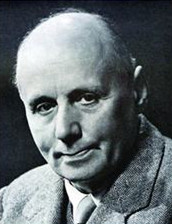A Journey that Inspires Belief in Idealism
Issue date:2024-06-20
Every UWC graduate carries within them a unique UWC spirit, a spirit that embodies growth, transformation, and a profound exploration of oneself and the world. It is through their experiences at UWC that these students undergo remarkable change and develop a deep understanding of their place in the global community.
Known to his peers as a "magician" for his magic tricks, a "science guru" for his enthusiasm in sharing his knowledge to help his fellow students overcome their problems, and even as "the guy who calls on everyone to roll on the grass" for his infectious energy and ability to bring joy to others around him, Tony Liu, Class of 2024, shared his UWC story which is filled with exploration, innovation, and a commitment to idealism.
What is UWC?
When I first learned about UWC, I didn’t have a strong feeling about its so-called mission and values. Growing up in a traditional Chinese school, I was used to formalism: “internationalism” meant one class with a foreign teacher per week, “modernization” meant one projector in each classroom, and “experiential learning” only applied to open classes... However, my curiosity about this school outweighed my skepticism.
Even if UWC is meretricious, it is meretricious in its own ways. Most other schools brag about grades and college offers while this one puts big words like "Peace" and "Sustainability" before "Academic Programs" and "University Counseling" on its website. Plus, this is a school chaired by a queen and a president in its history. That sounded cool.
After coming to the school, I experienced some differences between UWC Changshu and other schools. At UWC Changshu, many seemingly bizarre ideas have a chance to come to life.
During the summer break after FP, I saw a post from a senior on WeChat Moments and, on a whim, returned to Changshu, stayed at the 50-yuan-per-day Fuyuan Hotel (where I met the best hotel owner in the world, who even helped us hang our clothes), and began a two-week film production for "Comet."
We entered the studio with no script, no equipment or experience, and no budget. All we had were twelve high schoolers who loved movies. Our beloved director, seeing us gathered for the first time, realized that his spur-of-the-moment idea was about to become reality. We crowdfunded 17,000 yuan, rented professional filming and audio equipment, contacted local actors, bought gardening lights at Changshu's hardware market as handmade film lights, and got friends from the frisbee team as extras... A complete short film emerged from nothing.
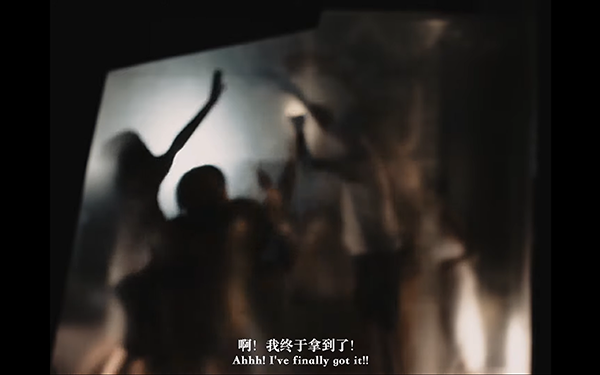
The cool shot in "Comet"
The most memorable shot for me was filming silhouettes through frosted glass. This was a crucial shot in the script, but during scouting, we couldn’t find a suitable location with large frosted glass. Our budget only covered five days of equipment rental, so we couldn’t spend more time looking for a venue. We planned to use frosted glass stickers for the effect.
On the shooting day, all the nearby hardware stores were closed. So, we improvised by buying frosted book covers from nearby stationery stores and sticking them on clear glass. The production was much more successful than any of us had thought, and we had a pilot screening at a local theater in Changshu.
I thought, in the age of the internet, we are well-versed in mainstream opinions and eager to dismiss different ideas. We often chuckle at out-of-the-box ideas. However, at UWC Changshu, people believe any idea is worth exploring. Here, I always find a few like-minded people to do something different. I’ve gradually gotten used to hearing passionate but seemingly bizarre ideas and taking the time to understand and improve them. Perhaps that is the inclusiveness in UWC’s values?
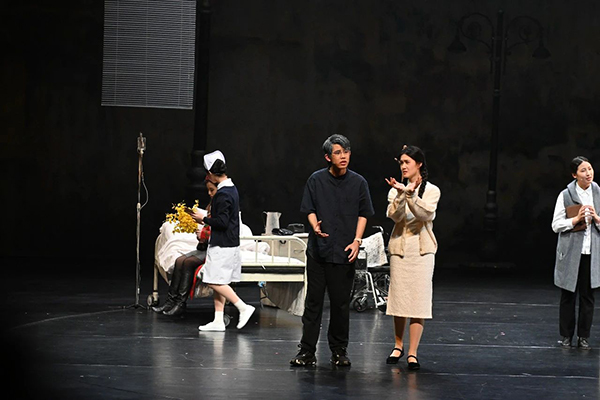
Performing Secret Love in Peach Blossom Land at the Theatre Above in Shanghai
But, chatting with seniors and classmates who transferred to other UWCs, I was often teased: UWC Changshu is no longer a real UWC! Can you understand what it feels like to discuss international politics with roommates from around the world in midnight? Can you grasp what it’s like to experience unfamiliar cultures at local family dinners? Indeed, with the absence of international students, campus lockdowns, and online classes, I don’t know if what I experienced can be called a “real UWC.”
Though I did find many interesting classmates at UWC Changshu, when it came to topics like IB, college admissions, and education, everyone’s responses were still assimilated. I don’t believe a UWC without international students is not a “real UWC”, but seeing the anxious atmosphere at school, I always felt something was missing.
So, in my DP2 year, when international students first arrived at UWC Changshu after the pandemic, I was quite nervous. Not because international students are naturally more “UWC” than us, but because these students, who traveled and left their homes to study here, tend to have a deeper recognition of UWC’s ideals and expectations.
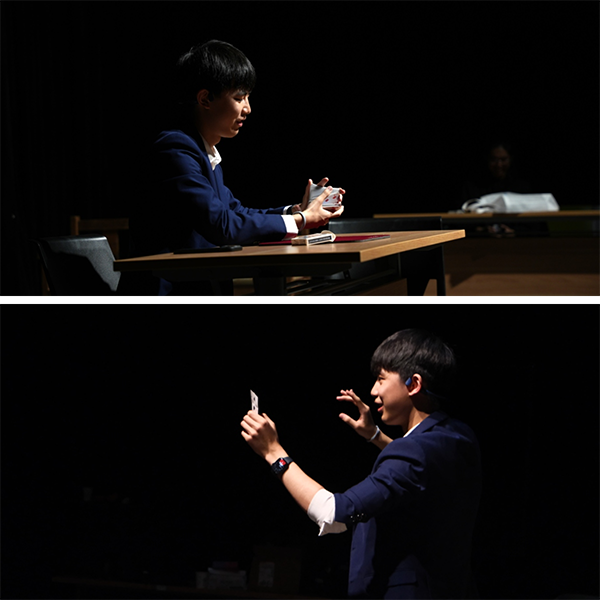
Out of interest in magic, I founded
Magic Zhi Xing
Seeing their passion, I began to doubt: As DP2 students, are we really the “UWC” they expect? Do we even have the right to define what UWC means to them?
I talked to my advisor about my concerns, and he told me, “You are the students who have experienced the greatest changes in this school. Of course, you are the most qualified to rebuild the school’s future culture after the pandemic.”
“Rebuild”? What does “rebuild” mean? What exactly needs to be “rebuilt”? Honestly, I’m not confident I know what UWC is. Whenever I pass by the wall with the “UWC Mission” outside the theater, the words on the wall blur out more and more, fading away from me. However, I do have some vague ideas about what “UWC is not”. So, I began my small attempts.
First, my buddy Jonathan and I signed up to speak at the School opening ceremony. I believed the anxiety we encountered was a phenomenon stemming from herd mentality. In such a collective setting, making a call to action might change the tone for the coming year (also, I thought it would be fun to stir things up at the opening ceremony).
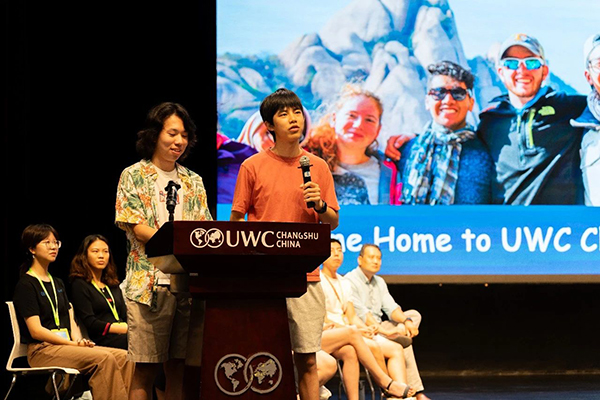
Speaking at the opening ceremony
“In my two years here at UWC Changshu, I saw what this anxiety has done to us. People cry in their dorm for hours just because of an exam; people drown their summer vacation in SAT classes, every day, from 8 AM to 10 PM; people spend hundreds of thousands hoping others can get them into colleges that their parents crave for. This might sound crazy but I’m sure most of you have seen these stories too, with your own eyes, either here at UWC Changshu or somewhere else. You allow this anxiety to strangle you, to threaten you to do things that you know won’t help, that only provide some sort of short-term consolation. Interestingly enough, I often find people staring at a blank Word document, trying to escape from the guilt of not working while not producing much; or browsing through textbooks with no purpose, just to enjoy the feeling of studying.”
At the end of the speech, we called on students to roll on the grass to show everyone that they were relaxing (if you haven’t tried it, trust me, rolling on the grass can instantly boost your dopamine base level (Liu and Ni)). Although the response to this grand mobilization was scattered, in the second half of the year, we did manage to get nearly a hundred people to roll on the grass together. At the graduation ceremony, I also echoed my noble call of action.
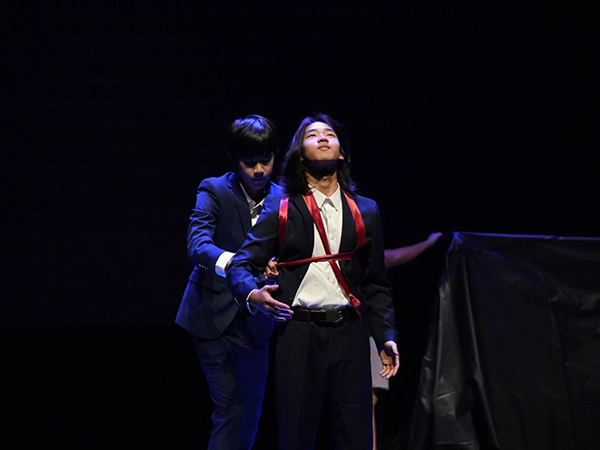
Magic Night was themed around the destructive nature of unhealthy involution.
My goal in directing it was to combine drama and magic to not only provide magical surprises to the audience but also to inspire them to reflect on involution.
Where is UWC?
A few weeks after school started, my Vietnamese roommate Minh showed me a UWC promotional video on YouTube. It featured UWC students rowing at the foot of snowy mountains, waving flags, and discussing international issues. He told me it was his first time leaving his home country, and that’s why he came here. He didn’t seem very satisfied with his UWC experience here.
I wanted to defend my school: though we don’t have snowy mountains, we have the Kuncheng Lake! Those flag-waving activities are usually only on special days, like UWC Day; you won’t see them every day at other campuses either!
He shook his head and told me: what he wanted to see wasn’t those activities, but the passion in those people’s eyes. These people seemed to truly love their school and what they were doing, and he thought living in such a community would be incredibly happy, whether under snowy mountains or by a lake.
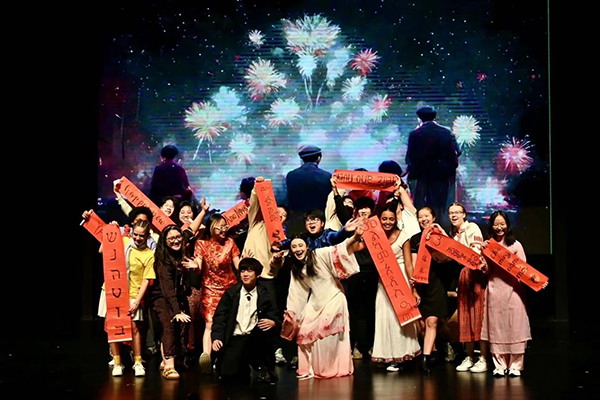
Performing at 2024 Chinese Cultural Evening
I am not saying that students in our school are not passionate, but after the lockdown and perhaps due to the more conservative Chinese culture, I realized that some of the activities that we were previously proud of started to lack the necessary passion, causing them to gradually wither. For example, the bi-weekly Global Issues Forum: in a theater of five hundred people, everyone felt pressured to speak, resulting in only a few in-depth discussions. The Forum seemed to have really become a formality, existing only for the sake of the school’s advertisement.
Before my roommate brought it up, I never realized the Forum was problematic. It had always been like this since I came, as if it should naturally be so. I discussed this with many of my peers and found this to be an interesting contradiction: the topics of the Forum were deep and engaging, yet few participated in the discussions. Perhaps the fundamental form had room for improvement? Such issues can’t be entirely controlled by the speakers but require more audience involvement.
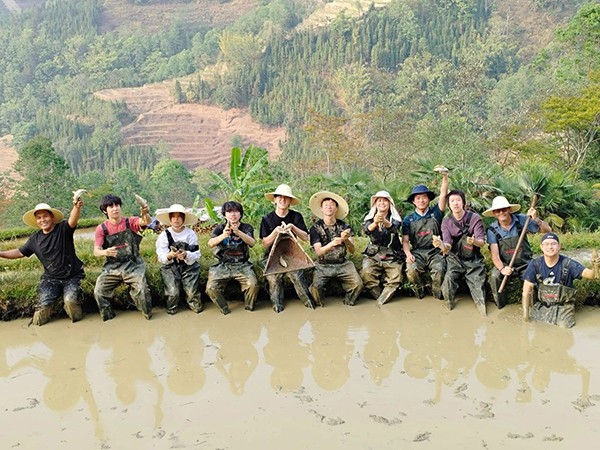
During DP2 project week, we visited the Red River Chelong Village of the Hani ethnic group in Yunnan. We explored the conflict between local cultural preservation and economic development. The photo shows us fishing in a terraced field.
For the last Global Issues Forum of the year, I signed up with a topic on education. I wanted to continue from my previous “involution in education” speech, starting with the difference between intrinsic and extrinsic motivation, and discussing the impact of the education system on mental health. During lunch, while discussing with philosophy teacher Max how to make the forum more engaging, he suddenly stood up: “Since your topic is about the autonomy brought by intrinsic motivation, isn’t it quite hypocritical to force six hundred people to sit in the theater and listen to your forum (with the typical “are you not so bright or what” look from Max)?”
So we got up and went to Vice Principal Jared, who was having lunch. We explained our idea, and he immediately agreed to let us try this forum without taking attendance.
So we first gathered in the theater, briefly introduced some background information, and told everyone: we would not take attendance for the second half of the forum, but split into three locations for small-group optional discussions on three different themes. You could go back to your dorm to sleep, or come and discuss with us. Go where your heart leads you!
Leaving the theater, I was frankly quite nervous. We even baited students with snacks, hoping to attract more people to join. In most communities I stayed in, these attempts are meant to fail: a few people would join the discussion, a little more come, grab some cookies, and go. I was prepared for that. You know, worst-case scenario, we run the discussion with only a couple of people. No big deal, we can get better bonding that way!
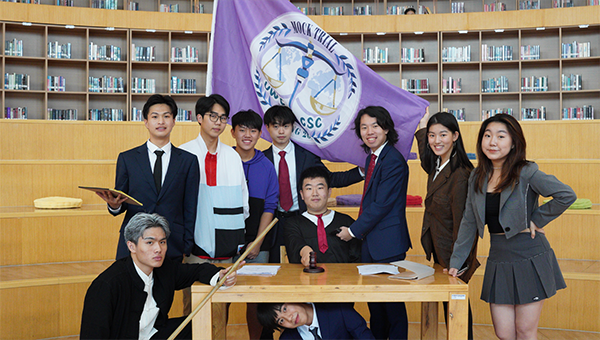
Mock Trial Zhi Xing
I sat in the middle of the grass circle and, looking back, saw nearly exactly one-third of the people walking towards me and sitting down next to me. Woah, this time, we were all here voluntarily. The smaller scale of the discussion brought us closer together. Honestly, I had never seen such in-depth forum discussions. When people spoke, they could look at each other and anticipate responses.
Our voices weren’t loud, but everyone could hear them. Everyone excitedly shared their views on educational methods and purposes, as well as their own stories about education. It wasn't until Jared suddenly checked his watch and realized it was long past class time that we reluctantly left (but not before everyone did a roll). None of us anticipated that almost everyone would be willing to give up an extra hour of sleep to participate in a forum that’s generally considered "boring". Such a huge change was so simple, but it seemed like it could be achieved with just one sentence.
With more and more issues being raised and addressed, an organization with a cool name, “Operation Fenghuang (Phoenix),” was established. Within a year, besides the Global Issues Forum, we proposed a redesigned timetable and was adopted by the School. We also improved Cohort Meetings, assemblies, the school calendar, orientation activities... Besides, we initiated various cultural events, UWC TV, and a dinner event called “Washing Machine Dinner” (stemming from an international student's misunderstanding involving washing shoes in the washing machine). We hope to create a relaxed atmosphere to enchance communication between students.
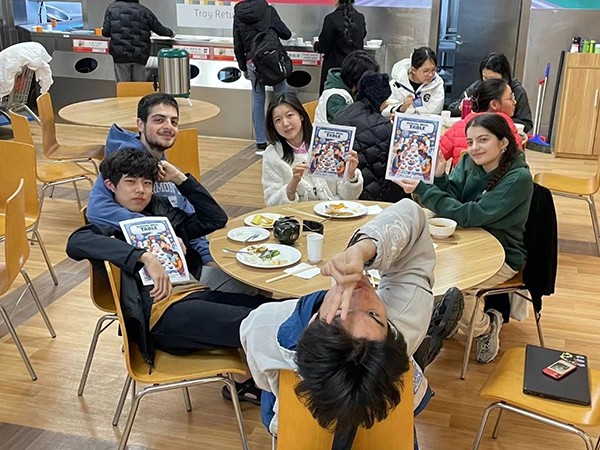
Washing Machine Dinner Group
When I was young, I read a short science fiction story by Liu Cixin about how just the emergence of an idea in the past can dramatically change the future world. At the time, I always thought such plots were only fictional. However, here, it seems ideas are indeed quite close to reality. When we complain that our school is no longer a “real UWC,” are we in fact only a step from getting there, simply lacking someone to step up and tell everyone that we have issues?
Our inner desires haven't disappeared; they just need a bit of passion to be realized. What I’m grateful for in UWC is that whenever I throw out a passionate idea, it is always caught. Idealism never gets betrayed. Bold attempts are always met with responses. This environment makes me braver, and willing to work for a better future, because I know I have a group of people passionately supporting me.
Who is UWC?
The most memorable activity after international students arrived at the school was a discussion on the Israeli-Palestinian conflict. We sat in the black box theater, listening to students from Palestine, Israel, and other affected regions share their stories related to the conflict. Our host Jacob told us that before the discussion, they had already chatted three times. During the first meeting, almost no one spoke and they barely dared to look at each other. Later, they gradually felt at ease, willing to share their experiences with war. Even so, when faced with over thirty pairs of eyes that had never experienced war, it still took a long while for them to start.
In the small room, some would need to return to Israel to join the army upon graduation, while others confessed that they still instinctively looked for the nearest exit whenever they heard fireworks outside. When they called home every night, there was no need to say anything as long as the call was answered. The only Palestinian student at the school told us that he had uninstalled all news and social media apps because he couldn’t bear to see the cold numbers every day, imagining how many familiar names were among them.
He believed that instead of dwelling on the pain, it was better to set aside anxiety, focus on studying, and become an architect to contribute to post-war reconstruction. His English wasn’t perfect, and his aspirations were expressed with common, even somewhat awkward phrases used in motivational speeches like “study hard”. This was the first time I was moved by these words.
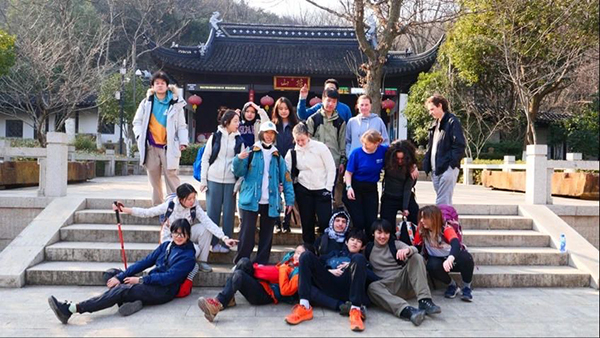
Hiking with classmates and teachers
It was hard to ignore the occasional sobs of each speaker (every word was so heavy, they were unprepared to share their fears and sadness, but how could these sixteen or seventeen-year-olds be ready?). However, the Palestinian student patted the Israeli student on the shoulder and said it was okay, that they were in it together. They laughed, admitting that at the beginning of the school year, they knew each other's names and nationalities but never dared to imagine interacting. But now, they were friends!
These students with opposing identities comforted, understood, and sympathized with each other. This was a scene that couldn’t be seen in numbers on the internet. The biggest victims of the conflict could empathize and trust the victims from the opposing country the most. Such strong bonds of trust usually form only among a few people through extensive communication.
But at UWC, this trust and open-heartedness could easily arise among over thirty newly acquainted students. This made me think: what if it were hundreds of UWCers? What if it were tens of thousands of UWCers? This was the first time I truly felt that UWC's mission for peace wasn’t just empty talk.
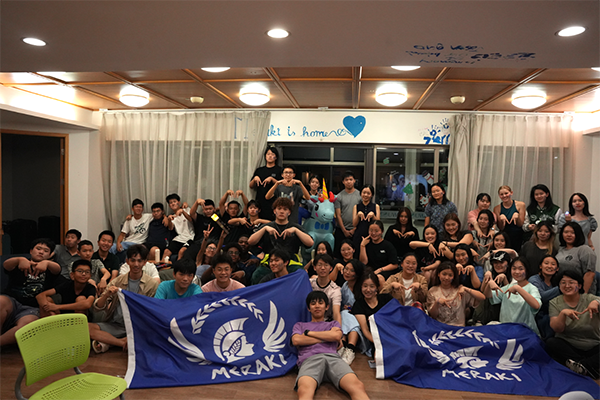
My House Meraki
Saying that international students brought me the true UWC experience might be too shallow, but their arrival amplified my passion for ideals and gave me a cultural shock I had never experienced before.
Here, I can freely propose childish ideas without being judged. Here, I can always find passionate companions to make our community better together. Here, I can be immersed in conflicts yet be protected from disputes, safely letting go of stereotypes about myself and others, and experiencing our differences together.
People say UWC is a bubble. Within this bubble, these miraculous things happen naturally, making me wonder why they don’t happen as much in the world outside. In this sense, UWC is indeed like a bubble—fragile and ethereal in appearance, but with a group of people standing behind it, it becomes indestructible.







